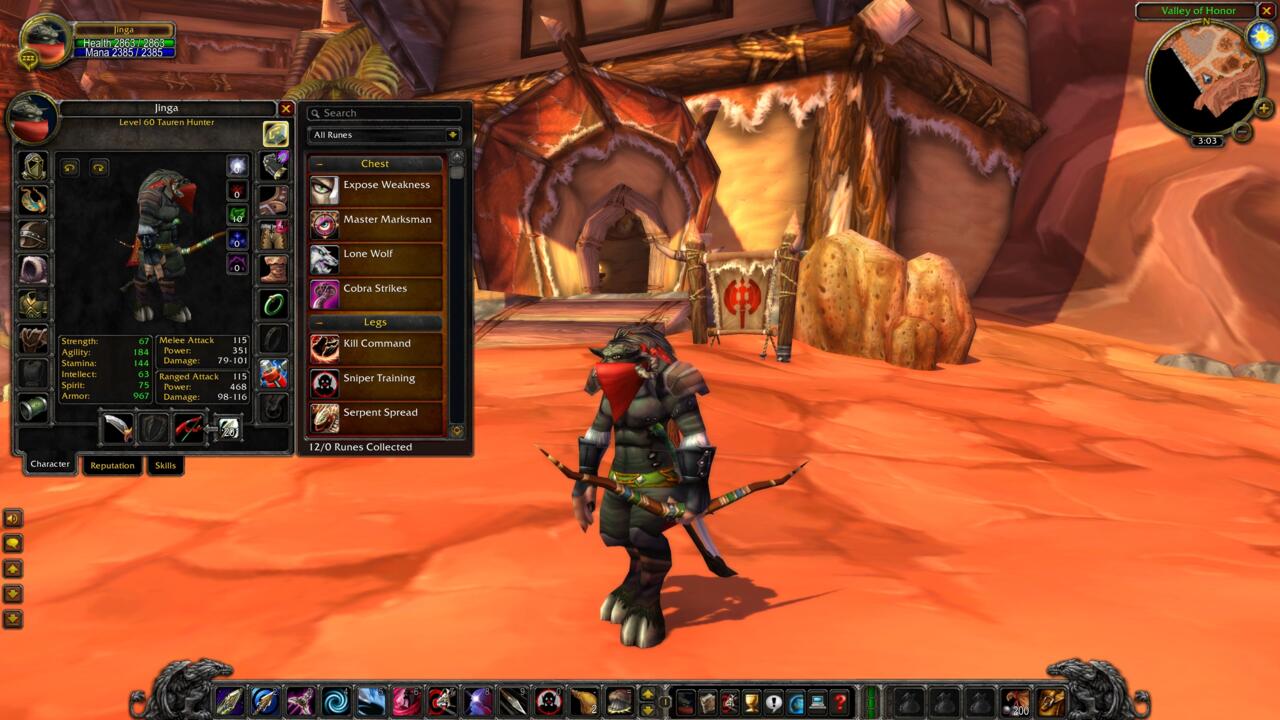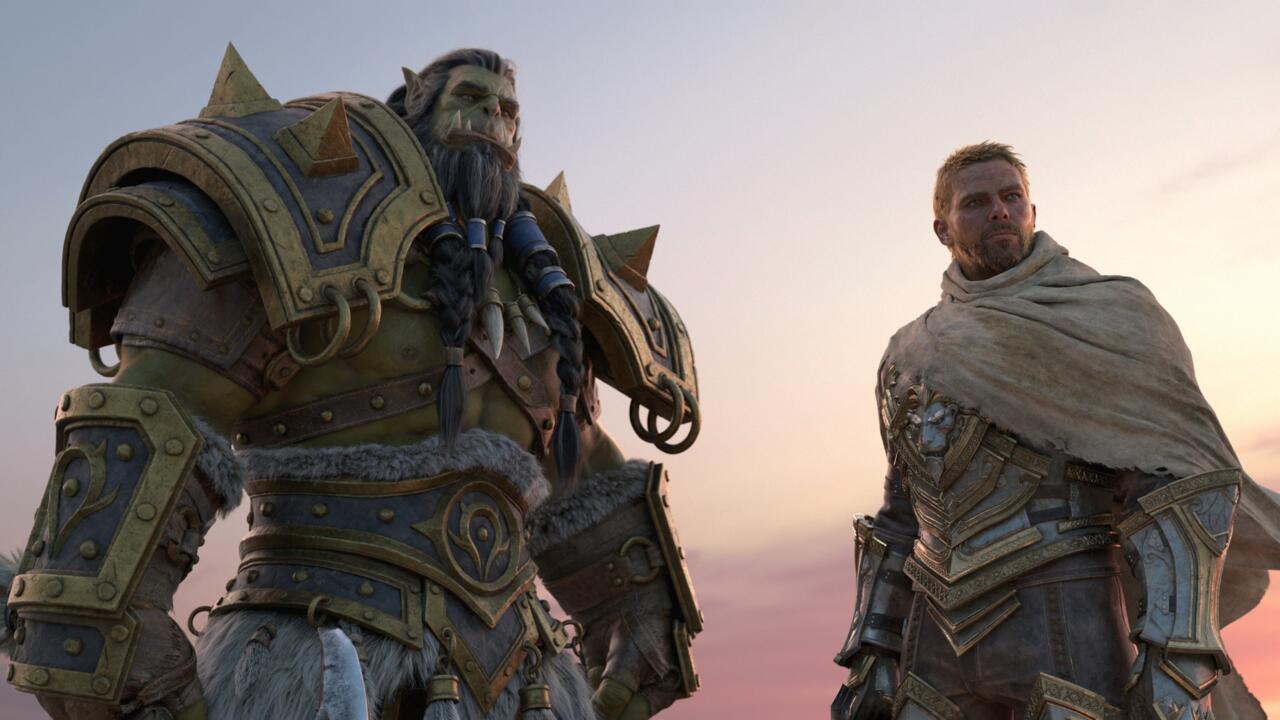World of Warcraft will be 20 years old in 2024. After two decades, one might think that players of Blizzard’s MMORPG have seen it all. But 2023 proved that Blizzard still has plenty of ideas about the game’s future, and if the last year is any indication, that future certainly looks bright.
The latest expansion for the modern version of WoW, Dragonflight, launched at the tail-end of 2022 to positive reviews, alongside an ambitious content release roadmap for 2023. The expansion itself proved to be a well-crafted, return-to-basics affair that the game sorely needed after 2020’s widely disliked Shadowlands expansion. All that goodwill, however, could have easily been squandered if Blizzard failed to deliver on its promises to deliver more content on a more frequent basis in the year ahead.
Considering how the release schedules for expansions like Warlords of Draenor and Shadowlands went, when six or more months could go by without any substantial additions to a game users pay $15 a month for the privilege to play, I think it’s safe to say many players were skeptical Blizzard could deliver on its promises. Two major content updates alongside four minor ones over the course of 2023 sounded ambitious, to say the least.
Blizzard, thankfully, delivered all that was promised and then some. Every eight weeks or so, there was substantial new content for players to sink their teeth into, whether it was long-awaited Heritage Armor quests, new story content, or new open-world events. The game’s “minor” updates did much of the heavy lifting here, and calling them “minor” honestly feels like it does them a bit of a disservice, as many of Dragonflight’s smaller updates felt more substantial than some major patches in previous years.
Not even counting the two major content patches, which added new raids, zones (including a long-awaited Emerald Dream zone), story quests, and new PvP and Mythic+ seasons, Dragonflight in 2023 received the new Trading Post feature, which is in of itself a major addition that has changed how players play and are rewarded. Heavily anticipated Heritage Armor questlines for Orcs, Humans, Forsaken, and Night Elves all arrived this year. We also got the ability for more races to be more classes, multiple new events, updates to the game’s various holiday events, a never-before-seen support style DPS specialization, more story content, a time-travel focused megadungeon, a substantial rework for Retribution Paladins, UI improvements, and more.
That’s a lot of stuff! Early next year, the game’s Seeds of Renewal update will arrive, and with it the option to run dungeons with NPC companions and the ability to use dragonriding across the entirety of Azeroth, instead of solely in Dragonflight’s Dragon Isle zones. Those are both huge additions, and features that in the past likely would have been saved as part of a major content patch or even an expansion, and as such would have taken months or even years, rather than weeks, to arrive.
In an interview with GameSpot earlier this year, WoW executive producer Holly Longdale said the WoW development team had essentially “reinvented” itself, and along the way changed its definition of “what it means for WoW to be a live-service game.” Based on Activision Blizzard’s earnings reports, it seems the WoW team’s reinvention has paid off, with Dragonflight boasting higher subscriber-retention numbers when compared to other recent expansions.
WoW Classic, too, has had an eventful year. In Wrath of the Lich King Classic, Ulduar and Icecrown Citadel were both rereleased, giving fans the chance to relive some of the game’s most iconic raids. The game’s Classic Era servers saw a resurgence in popularity thanks to a fan-driven Hardcore mode, where players battled their way through Azeroth on a quest to reach level 60 without dying. A one-life permadeath mode turned out to be a great way to experience the original version of WoW and highlighted much of what made the game special. Blizzard agreed, and in August launched official Hardcore servers, where close to 3 million characters had met their permanent demise by the end of October. The mode was a hit on Twitch especially, and even spawned the biggest, highest-stakes PvP tournament in the history of WoW in the form of OTK’s $100,000 prize pool Hardcore Mak’gora Tournament.
Normally, all of the above would be a huge year for both versions of Blizzard’s flagship title. But 2023 also marked BlizzCon’s return as an in-person event for the first time since 2019, and with it, a slew of WoW-related announcements. Though there were reveals for Overwatch 2 and Diablo IV, BlizzCon 2023 was largely dedicated to what was next for WoW.

As it turns out, a lot. WoW Classic players were excited, and initially a little bit confused, when Longdale took the BlizzCon stage to announce a new season of WoW Classic called Season of Discovery was coming before the end of the year, one that would turn the old-school version of Blizzard’s MMO on its head with tanking Warlocks and healing Mages. Blizzard would even be re-releasing the game’s Cataclysm expansion, citing player demand for it, in 2024.
Then came the moment fans had been waiting for. Chris Metzen, one of WoW’s founding fathers who recently rejoined Blizzard full-time as an executive creative director, took the stage to hype up the crowd. It wasn’t long before the jaws of WoW players everywhere hit the floor when Metzen didn’t just announce the next WoW expansion as expected, but the next three expansions. Blizzard was making a commitment to a trilogy of expansions called The Worldsoul Saga, one that would tell a larger story and would be the culmination of many of the storylines and plot threads that have persisted throughout WoW’s 20-year history. Better yet, Metzen pledged Blizzard would do everything in its power to release the expansions more quickly than fans were used to, seemingly hinting at the possibility of a 18 or 12-month expansion release cadence, significantly faster than the two-year expansion release pattern Blizzard has used since the game’s earliest days.
Going into 2024, the always-moving train that is WoW feels like a well-oiled machine for the first time in a long time, rather than a runaway locomotive struggling to stay on the shoddily built tracks that were laid in front of it just moments ago. The last year of WoW has proved that Blizzard has what it takes when it comes to delivering meaningful new content to keep players coming back, and there’s nothing so far that leads me to suspect that won’t continue in the year ahead, as is evidenced by Blizzard’s WoW content roadmap for 2024. It’s a Blizzard that is more transparent with its plans than ever before, and also one that isn’t afraid to experiment, listen to player feedback, and cast off old-assumptions about what works and what doesn’t.

There have, of course, been controversies in the last year. Fans don’t seem pleased with Blizzard’s decision to sell early access to an expansion for the first time in WoW’s history. There have been questions about WoW’s content development pipeline, and how it can allow for potentially controversial or offensive content to reach the game’s public test realm with seemingly little oversight. In Wrath of the Lich King Classic, the sudden introduction of the controversial WoW Token with no prior warning from Blizzard caused an uproar among the community and served as a reminder that even if Blizzard has largely improved when it comes to communicating with fans, it can still on occassion fail spectacularly. And there are still concerns that Trader’s Tender, the currency used as part of the game’s recently introduced Trading Post and which were originally only earnable by completing in-game activities, has become just another microtransaction thanks to Blizzard’s decision to offer the currency as part of various shop bundles and expansion preorders.
Be that as it may, it seems clear Blizzard is listening–something that in more recent years hasn’t felt like it’s always been the case. It’s hard to imagine the Blizzard of just a few years ago introducing so many quality-of-life changes for those who play multiple characters or the ability to run dungeons solo with NPC teammates. It’s equally hard to imagine the WoW Classic team of 2019, once solely dedicated to recreating the game as it was two-decades-ago, introducing brand-new abilities, items, and content to the 2006-version of the MMO. That’s exactly what has happened recently with the launch of Season of Discovery, in many ways turning the old-school version of WoW into a brand-new experience. It’s an experience players seem eager to see unfold over the course of the next year.
This is all to say that 2023 proved to be one of the best years in WoW’s long history. Blizzard delivered fantastic new features and evergreen improvements alongside interesting new Dragonflight content at a steady pace that kept players subscribed and logging in for more. WoW Classic is currently in the midst of forging a bold new identity for itself as well, with Season of Discovery looking to breathe new life into a game that has until now largely served as an interactive time capsule. WoW will be 20 next year, and though it remains to be seen how Blizzard will officially celebrate the occasion, continuing to build on the success of 2023 seems like a great place to start.
